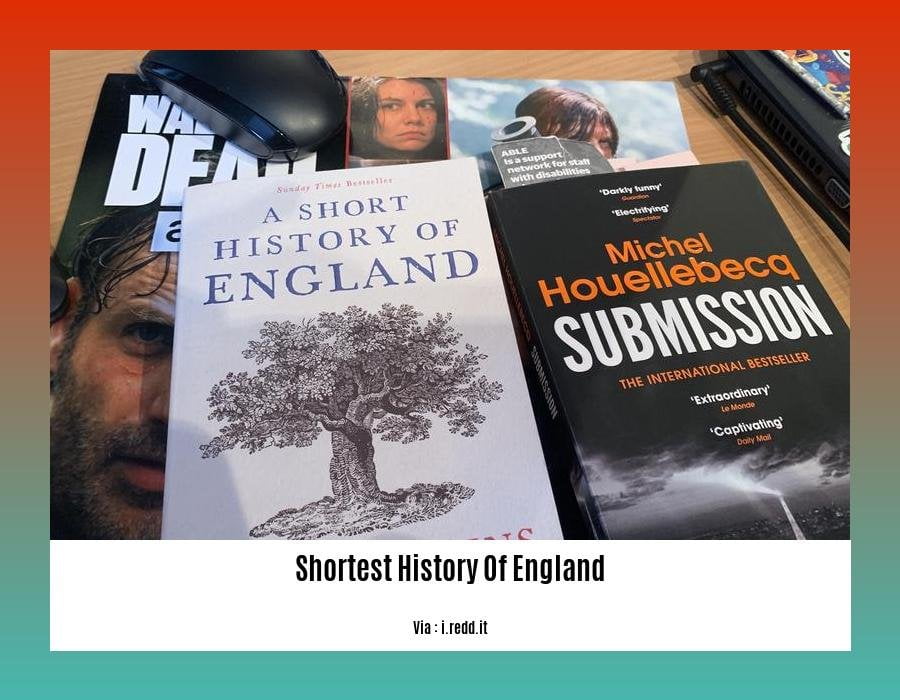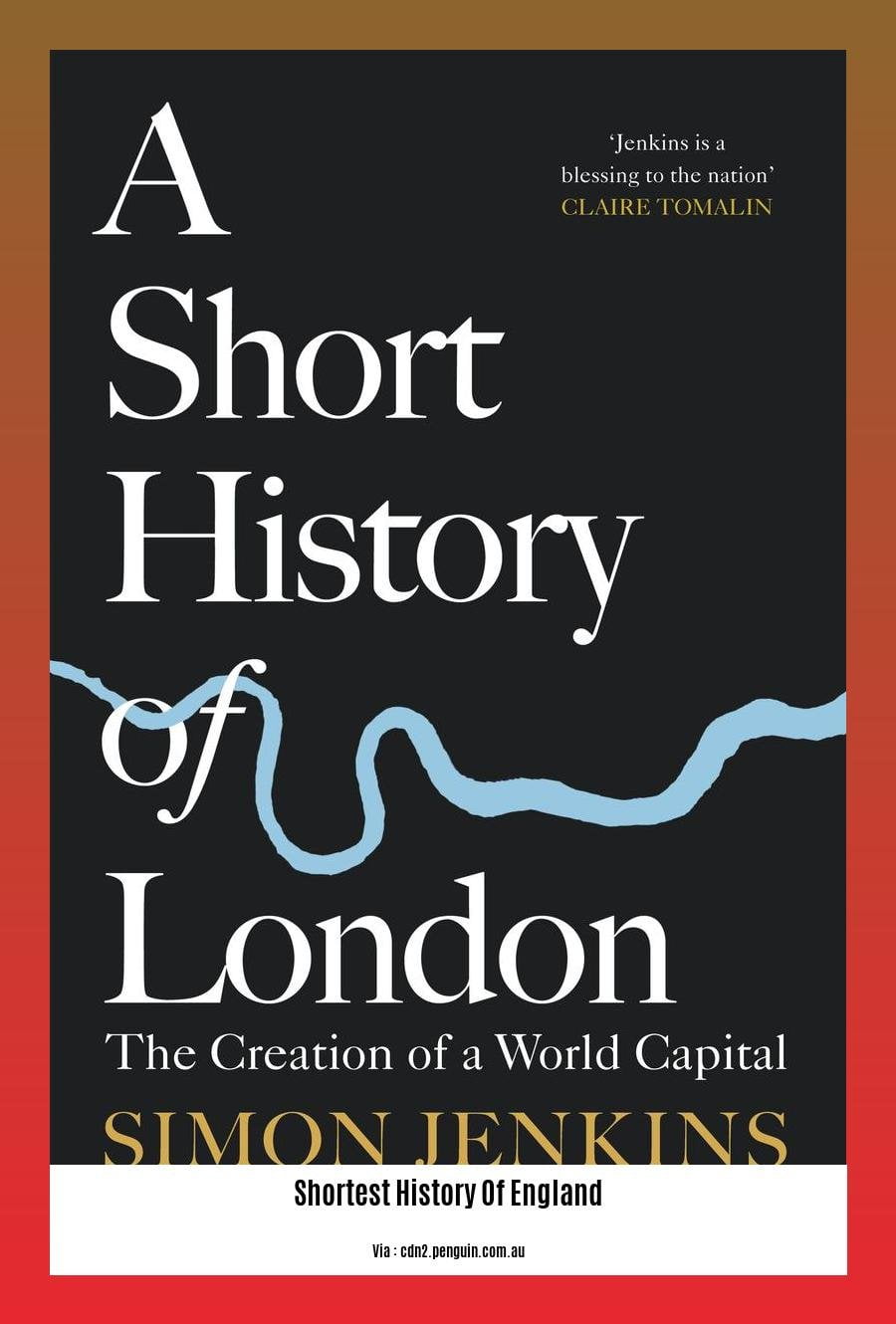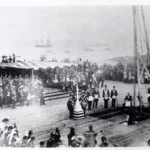Concise yet comprehensive, “A Historian’s Perspective: The Shortest History of England” provides a captivating journey through the annals of England, narrated by a distinguished historian with a passion for the subject.
Key Takeaways:
American colonists in 1776 believed they embodied the true Anglo-Saxon heritage and principles of liberty and self-government.
The British Empire’s decline was influenced by economic disparities and growing nationalism in its colonies.
Winston Churchill recognized that preserving the United Kingdom’s unity depended on delegating power from England.
Brexit reflects a desire to exert more control over immigration and national affairs, driven by a sense of grievance and mistrust in traditional institutions.
The Shortest History of England

Delving into the rich tapestry of England’s past, the shortest history of England unfolds as a captivating narrative. From the arrival of the Anglo-Saxons in the 5th century to the modern-day Brexit referendum, England’s journey has been marked by pivotal events, shaping its identity and place in the world.
The Anglo-Saxons and the Norman Conquest
The Anglo-Saxons, migrating from mainland Europe, established their kingdoms in England, leaving a legacy of language, customs, and institutions.
The Norman Conquest in 1066 marked a turning point, introducing feudalism and laying the foundation for a centralized monarchy.
The Rise of Parliament and the English Civil War
The Magna Carta, signed in 1215, limited the power of the monarchy and laid the groundwork for the development of Parliament.
The English Civil War in the 17th century pitted Parliament against the monarchy, resulting in the execution of King Charles I and the establishment of a republic.
The British Empire and Industrial Revolution
England’s global influence expanded with the rise of the British Empire, driven by exploration, trade, and colonization.
The Industrial Revolution, beginning in the late 18th century, transformed England into the world’s leading industrial power.
World Wars and the Welfare State
England played a significant role in both World Wars, emerging victorious but facing significant economic and social challenges.
The post-war period saw the establishment of the welfare state, providing social security and healthcare to its citizens.
The European Union and Brexit
England joined the European Economic Community (EEC) in 1973, later becoming part of the European Union (EU).
The 2016 Brexit referendum resulted in a vote to leave the EU, marking a significant shift in England’s relationship with Europe.
A Legacy of Resilience and Adaptation
Throughout its history, England has faced numerous challenges, from invasions and civil wars to economic downturns and global conflicts. Yet, it has consistently demonstrated resilience and adaptability, evolving and shaping the course of world history.
Conclusion
The shortest history of England offers a glimpse into the nation’s rich past, geprägt by conquests, revolutions, and global influence.
If you are searching to learn about Russia’s profound history, explore our comprehensive article on A Short History of Russia.
Dive into the depths of England’s rich social history with our engaging Q&A article on Social History of England Questions and Answers.
Rise of Parliament and the Magna Carta
In the annals of England’s storied history, the Magna Carta stands as a pivotal document that transformed the nation’s political landscape. Granted in 1215 by King John under duress from rebellious barons, this charter marked a watershed moment in the development of constitutional government. A remarkable achievement for its time, it sought to curb the monarch’s absolute power and establish the principle that even a king was subject to the rule of law.
Key Provisions of the Magna Carta:
Enshrined the principle of due process of law, ensuring that no one could be imprisoned, punished, or dispossessed of property without a fair trial.
Established the right to a fair trial by a jury of one’s peers, a fundamental principle of modern legal systems.
Limited the king’s ability to levy taxes without the consent of his barons, laying the foundation for the development of Parliament as a representative body.
Guaranteed the freedom of the Church, protecting its rights and privileges.
The Legacy of the Magna Carta:
Served as a cornerstone for the development of constitutional monarchy in England, limiting the power of the crown and establishing the principle of the rule of law.
Influenced the development of legal systems in many countries around the world, including the United States, where it is considered a foundational document.
Remains a symbol of individual rights and liberties, inspiring generations of activists and reformers in the fight for justice and equality.
The Rise of Parliament:
The Magna Carta paved the way for the development of Parliament as a representative body.
In the centuries following the charter, Parliament gradually expanded its powers, becoming a key player in English politics.
By the 17th century, Parliament had emerged as the supreme law-making body in England, limiting the power of the monarchy and establishing the foundation for modern democracy.
Key Takeaways:
The Magna Carta, granted in 1215, was a pivotal document that limited the power of the English monarchy and established the principle of the rule of law.
The charter established fundamental rights and liberties, including due process, the right to a fair trial, and the freedom of the Church.
The Magna Carta laid the foundation for the development of constitutional monarchy and the rise of Parliament, shaping the course of English history.
The document’s legacy continues to resonate, inspiring movements for justice and equality around the world.
Sources:
[1]
[2]
Tudor Dynasty and the English Reformation

Beneath the tumultuous waves of history, a dynasty arose, shaping England's destiny in ways unimaginable. This was the House of Tudor, a lineage that mirrored the grandeur of the era. Their reign ushered in a period of profound transformation, characterized by religious upheaval and the birth of a nation, united under a new faith.
The epicenter of this seismic shift was none other than Henry VIII, a monarch who dared to defy the authority of Rome, severing ties with the Catholic Church in 1534. This audacious act, driven by his desire to annul his marriage to Catherine of Aragon, ignited the flames of the English Reformation.
The reverberations of Henry's decision were felt throughout the realm. The dissolution of monasteries and the redistribution of their vast wealth marked a turning point in the nation's religious landscape. In place of papal authority, the Church of England emerged, its foundations firmly rooted in the principles of Protestantism.
Henry's daughter, Elizabeth I, inherited a kingdom on the cusp of greatness. During her reign, known as the "Golden Age," England flourished, its power and influence soaring to unprecedented heights. Through her astute leadership and unwavering commitment to Protestantism, Elizabeth cemented the nation's status as a bastion of religious reform and a force to be reckoned with on the world stage.
<b>Key Takeaways</b>:
- The Tudor dynasty ruled England from 1485 to 1603, leaving an indelible mark on the nation's cultural, political, and religious tapestry.
- Henry VIII's break with the Catholic Church in 1534 ignited the English Reformation, leading to the establishment of the Church of England.
- The dissolution of monasteries under Henry VIII resulted in a significant redistribution of wealth and power.
- Elizabeth I's reign, known as the "Golden Age," was a period of great prosperity and cultural achievement, solidifying England's position as a Protestant stronghold.
<b>Sources</b>:
-
-
Industrial Revolution and the British Empire
The Industrial Revolution, a transformative period in human history, took hold in Britain in the late 18th century. The British Empire played a pivotal role, harnessing the Industrial Revolution’s transformative power to expand its global reach and economic dominance.
Key Factors Driving the Industrial Revolution
- Britain’s abundant coal and iron reserves provided the fuel and raw materials needed for industrial growth.
- A network of canals and roads facilitated efficient transportation of goods and resources.
- Access to capital through banks and financial institutions fueled investment in new technologies and industries.
- A favorable political climate, with a stable government and supportive policies, encouraged innovation and entrepreneurship.
- A large and growing population provided a ready labor force and a vast consumer market.
Impacts of the Industrial Revolution
- Economic Transformation: Britain transitioned from an agrarian economy to an industrial powerhouse, becoming the world’s leading manufacturer and exporter of goods.
- Technological Advancements: Innovations such as the steam engine, power loom, and spinning jenny revolutionized production processes, increasing efficiency and output.
- Urbanization: Rapid industrial growth led to the rise of cities as people migrated from rural areas to find work in factories.
- Social Changes: The Industrial Revolution brought about significant social changes, including the emergence of the working class, the decline of traditional crafts, and the rise of trade unions.
The British Empire’s Expansion
The Industrial Revolution fueled the expansion of the British Empire, as Britain’s industrial might provided the economic and technological foundation for its imperial ambitions.
- British manufactured goods found ready markets in colonies, increasing demand for raw materials and expanding trade networks.
- The empire provided a vast source of raw materials, such as cotton, sugar, and tea, which were essential for British industries.
- The empire also served as a captive market for British goods, ensuring a steady demand for British products.
Legacy of the Industrial Revolution
The Industrial Revolution left an indelible mark on Britain and the world, shaping the course of human history:
- Britain’s industrial prowess and imperial expansion made it a global superpower, influencing political, economic, and cultural developments worldwide.
- The Industrial Revolution’s technological advancements laid the foundation for the modern world, transforming how we live, work, and interact with technology.
- The social changes brought about by the Industrial Revolution continue to shape societies today, with issues such as labor rights, urbanization, and social inequality still relevant.
Key Takeaways:
- The Industrial Revolution transformed Britain from an agrarian society to the world’s leading industrial power.
- Britain’s abundant coal and iron reserves, favorable political climate, and access to capital fueled its industrial growth.
- The Industrial Revolution brought about technological advancements, urbanization, and social changes, including the rise of the working class.
- The British Empire played a crucial role in the Industrial Revolution, providing markets for British goods, raw materials for industries, and serving as a captive market.
- The Industrial Revolution’s legacy is still felt today, shaping global politics, economics, and social structures.
Sources:
[1] https://www.history.com/topics/british-history/industrial-revolution
[2]
FAQ
Q1: What were the key factors that contributed to the decline of the British Empire?
A1: The decline of the British Empire can be attributed to several internal weaknesses, including economic inequality, the rise of nationalism in its colonies, and the growing global power of the United States.
Q2: What was the impact of the American Revolution on the British Empire?
A2: The American Revolution dealt a significant blow to the British Empire, as the loss of thirteen American colonies weakened the empire’s economic and political power and emboldened other colonies to seek independence.
Q3: How did Winston Churchill’s views on devolution contribute to the preservation of the United Kingdom’s unity?
A3: Churchill believed that devolving power away from England was essential for maintaining the unity of the United Kingdom. This approach aimed to address regional grievances and strengthen the bonds between England and the other constituent nations.
Q4: What are the origins and significance of Magna Carta?
A4: Magna Carta, granted in 1215, was a charter issued by King John of England in response to the grievances of English barons. It established the principle that the king was subject to the rule of law and affirmed certain individual rights and liberties. Magna Carta laid the foundation for constitutional government and the protection of individual rights, influencing legal systems worldwide.
Q5: What were the key developments and achievements during the Tudor dynasty?
A5: The Tudor dynasty, which ruled England from 1485 to 1603, witnessed significant changes in religion, politics, and culture. Notable events include Henry VIII’s break with the papacy and the establishment of the Anglican Church, the reign of Elizabeth I and the “Golden Age,” and the transition to the Stuart dynasty after Elizabeth’s death.
- China II Review: Delicious Food & Speedy Service - April 17, 2025
- Understand Virginia’s Flag: History & Debate - April 17, 2025
- Explore Long Island’s Map: Unique Regions & Insights - April 17, 2025
















